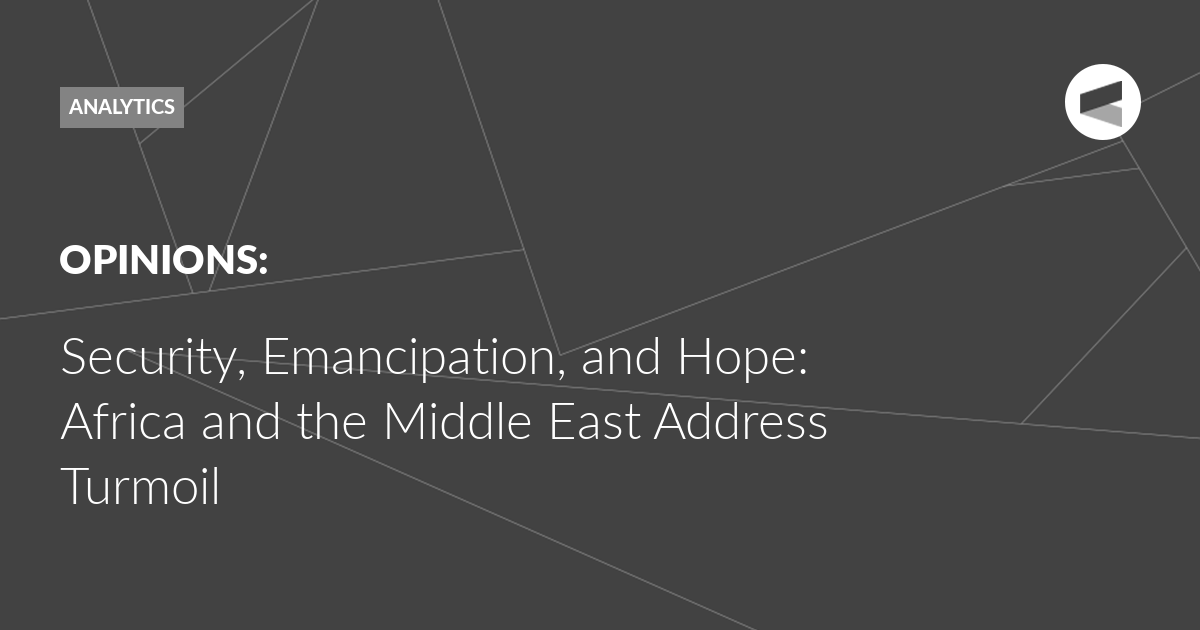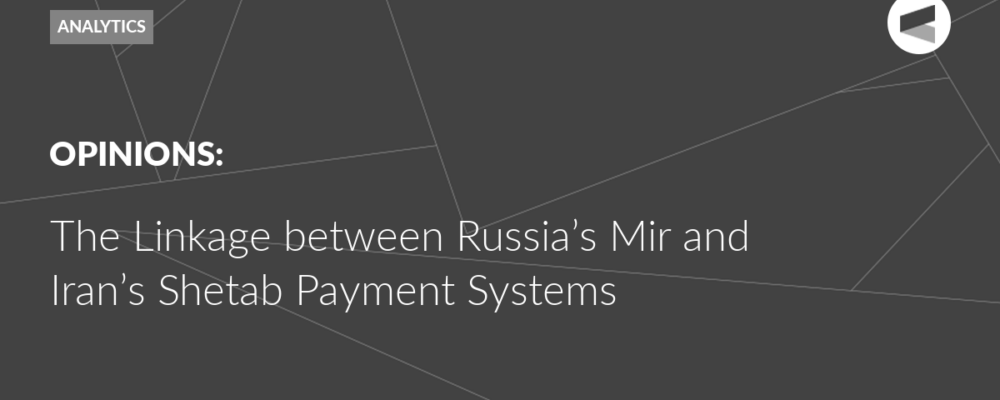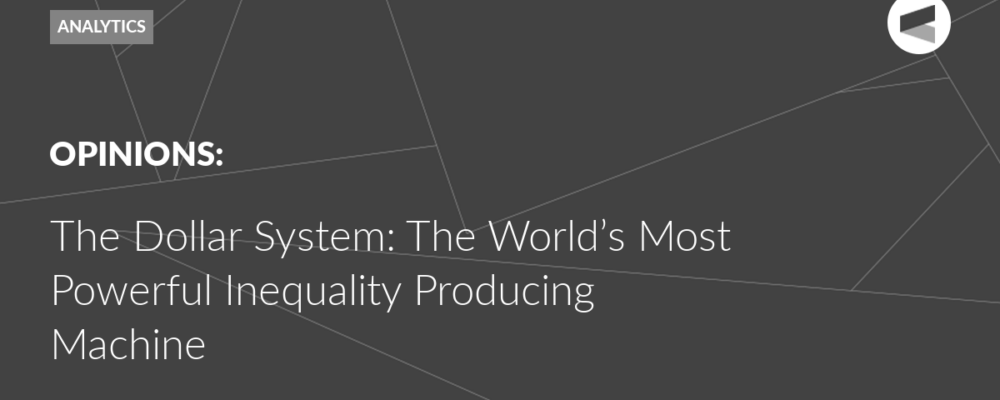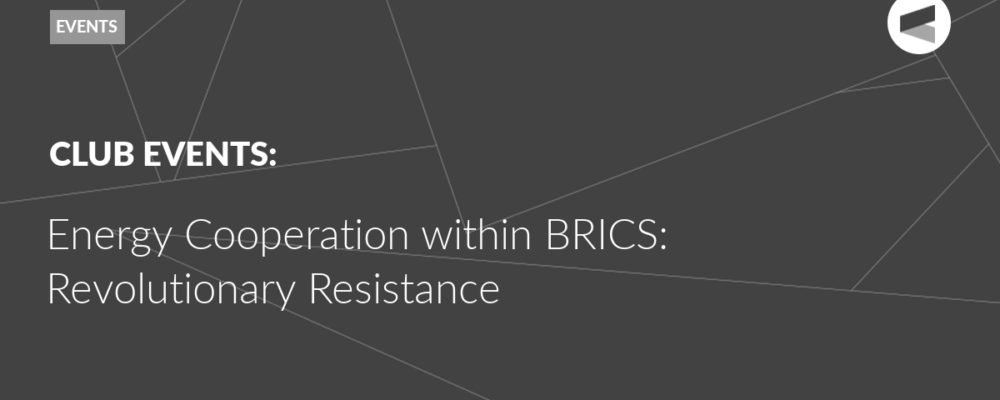The Red Sea, between Africa and Asia, plays an essential role in international trade and oil transport. Any disruption or closure due to intensifying conflict in the Middle East would have immediate repercussions for the economies of many African states. For example, countries such as Djibouti, Eritrea, Kenya and Egypt rely heavily on this sea route for their imports of essential goods. Closure or disruption would increase logistics costs, making it more difficult to access goods vital to these economies. Already weakened by climatic crises and economic shocks, they could see their supply conditions worsen as a result.
In addition, the Red Sea is also a strategic route for the transit of crude oil to world markets, notably those of Europe and Asia. A disruption of this route would not only increase costs, but also threaten the very availability of these resources in certain markets. The economic consequences could be dramatic: higher inflation, lower industrial production and increased poverty in countries which are already heavily dependent on imports to maintain their standard of living.
Faced with these risks, countries such as Egypt have called for greater maritime security, enlisting the support of international powers such as France and the United States. These initiatives aim to protect this vital artery from potential threats such as piracy, terrorism and military conflict. Several meetings have been organized between countries bordering the Red Sea and international powers to establish naval coalitions, strengthen surveillance of the waters and share intelligence information to ensure the safety of commercial vessels. The situation in which Egypt finds itself puts its government at odds with its population, which is fundamentally anti-Western and pro-Palestinian. This is also the case for most Western-supporting African regimes whose populations disagree with this choice, such as Morocco, which risks social unrest as a result.
Closing the Red Sea could also have disastrous humanitarian consequences. By preventing the transit of essential goods such as medicine, medical supplies and foodstuffs, the most vulnerable populations would be hardest hit. NGOs have warned of a potential humanitarian crisis, particularly in regions such as the Horn of Africa, which is already plagued by serious food crises. As India and China are the main exporters of medicine to Africa, their trade is likely to be heavily impacted.
The current crisis has also highlighted questions about the effectiveness of existing international mechanisms for maintaining peace in the Middle East. We have seen the ineffectiveness of pro-Russian votes at the UN, or the condemnation of the Israeli regime by the ICC, or the systematic vetoing by the USA of UN resolutions calling for an end to the massacre in Gaza. The recent BRICS summit (Brazil, Russia, India, China, South Africa), held in Kazan in 2024, addressed the issue of regional instability and the opportunity for the BRICS to play a more decisive role in mediating international conflicts.
The BRICS have recently strengthened their cooperation, and the idea of positioning themselves as a credible alternative to traditional international institutions, such as the UN, for resolving global crises, is gaining ground. For many African countries, the BRICS represent a more inclusive platform for dialogue, less influenced by Western interests. The BRICS could, for example, propose peace negotiations in the Middle East without the same geopolitical constraints that often limit UN action.
South Africa, as a member of BRICS, has played an important role in steering discussions towards alternative approaches to peace in the Middle East. The willingness to break away from traditional multilateral structures would enable the countries of the Global South to promote conflict resolution that is more focused on regional and economic needs, without external interference that is perceived as unbalanced.
In addition, cooperation between the BRICS and Middle Eastern countries could lead to the creation of innovative financing mechanisms, with the establishment of regional stabilization funds, which would be used to support countries in crisis. These funds could also be channelled into rebuilding infrastructure destroyed by conflict, offering a long-term solution to prevent the resurgence of violence.
China and Russia, two influential members of BRICS, have expressed their support for an approach that would favour more impartial mediation, free from the pressures of the former colonial powers. This could attract other countries in the Global South, including those in Africa, who see in this initiative a chance to reshape the international order in a more balanced way. The BRICS countries have already begun to establish contacts with Gulf states, seeking to align their objectives in terms of regional peace, economic development and energy stability.
The BRICS’ policy of openness towards the countries of the Global South is whetting the appetite of many countries to join this politico-economic “club” under construction. This is particularly true now that the creation of a single currency and a common payment system (BRICS Pay) has begun to take shape, offering a real alternative to African countries in need of emancipation.
African perspectives on the Middle East crisis are strongly influenced by the risks associated with oil and food supplies, and by the potential consequences of the closure of the Red Sea. In this context, the BRICS summit offers a new perspective on how to negotiate peace in the region, as a potential alternative to the UN, and could provide African countries with a more autonomous platform to influence the peace process. The BRICS represent an opportunity to diversify diplomatic partners, propose more innovative solutions and reduce dependence on traditional multilateral structures. The future of stability in the Middle East could depend on the ability to create new regional cooperation frameworks, which are less dependent on traditional power dynamics and more receptive to local realities. In this sense, the mobilization of the BRICS and African players for a negotiated peace in the Middle East illustrates a transition towards a multipolar international system, in which each region would have more power to manage its own challenges.
The Valdai Discussion Club was established in 2004. It is named after Lake Valdai, which is located close to Veliky Novgorod, where the Club’s first meeting took place.
Please visit the firm link to site






